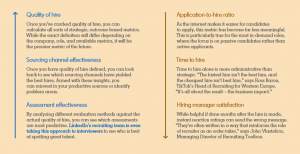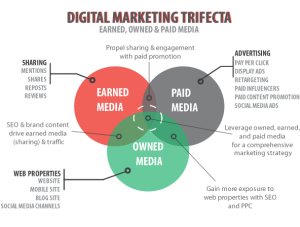— September 11, 2019
If you’ve ever looked into the idea of selling a service-based business before, you probably came away with a somewhat negative view. Conventional wisdom is that a small service business — where the owner’s skill and ability makes up the majority of the company’s income potential — is notoriously difficult to sell and is unlikely to fetch much money if it does.
And, in a lot of cases, that’s true.
However, there are certain circumstances where it’s not only possible to sell a service business, it’s a great idea. And, there are other circumstances where it’s worth a try even if it’s not likely to earn you top dollar.
So, let’s jump into five reasons why you may want to seriously consider selling your service business:
You’ve successfully turned it into a product business
When it comes to selling a business, it’s traditionally far easier and more profitable if that business sells products than if it sells services. That’s because products are more tangible and easier to quantify. The quality of the product doesn’t generally increase or decrease over time. Production and distribution of a product is tremendously scaleable and they aren’t based on the whims, health, or family circumstances of an individual.
That’s why so many businesses that started out as strictly service businesses have eventually incorporated products into their offering. And, in many cases, have even eliminated services once products take off. The classic example is the consultant who writes books or puts on seminars, thereby scaling the salable use of their knowledge and skill so they’re no longer trading hours for money.
One good real-life example of this phenomenon is 37 Signals, originally started in 1999 as a web design agency. After some time, however, they developed a powerful project management software called Basecamp that became incredibly popular. In 2014, they changed the name of the company to Basecamp, jettisoned the service end of the business, and have been able to successfully scale to support an ever-growing community of Basecamp users worldwide.
You’ve scaled to the point of predictability
This can occur if your services business is not so much based on your own personal level of skill and knowledge, but rather on a set of skills that are in high demand and that you have been able to successfully staff for.
Traditional examples of this type of service business may be landscaping, cleaning, or trade work. If you’ve built a service business with enough skilled and support staff on hand to keep new business flowing in and keep existing customers satisfied, that breeds longevity and a strong financial backstory. After a while, your long term success can earn confidence in the eyes of a prospective buyer, making selling your service business a breeze.
As is the case with any successful business sale, it’s vital in this case to have built the business to the point where you (as the owner) are no longer integral to the day-to-day operations. That way, another owner can confidently step into that role with the assumption that the machine will continue running as it has.
Your brand dominates the local/regional market
This situation is similar to the one described above, but may occur earlier in the company’s history if the branding is strong enough and/or the competition is weak enough.
In this scenario, your service business is the only one of its kind in the area despite there being strong, ongoing demand for your services. Or, existing competition is so far beneath your level of established reputation and market share, they may as well not even exist. (Admittedly, this is a very rare thing, and if you think it applies to you, we recommend getting a second and third opinion from professionals before committing to a course of action.)
If that’s the situation, your service business would become highly salable. The only caveat is, it would only appeal to a buyer who’s interested in exploiting what is most likely a highly niche service and/or an out-of-the-way location. So, it may not have as broad an appeal as some of the other situations described here.
You’re worth more as an employee
Since most small service businesses are built around the owner’s skills, knowledge, and time, they’re really just self-supported jobs that lack a boss. When handled wisely and successfully, it’s quite possible that a service business can earn the owner more than they would normally earn doing the same job for someone else.
But, that’s not always the case. Especially in highly competitive markets, smaller companies will often need to cut rates in order to compete effectively, so they end up with the same profit margins as their larger competitors with more overhead to support. And, economies of scale often work against the smaller business, too.
Under those circumstances, skilled professionals may actually find they can earn as much or more by becoming an employee again, and may even gain additional benefits such as a shorter work week, less risk, less stress, and paid vacation time. As long as being a business owner isn’t something they’re hopelessly emotionally attached to, it makes sense to make the switch.
If that describes your situation, you could just walk away from your business and apply for a job. But, if any of the above applies to your company, even to a limited extent, it couldn’t hurt to try to sell the business instead.
You’re sick of it
Skilled service professionals start running their own businesses for many different reasons. Sometimes, it’s the culmination of a lifelong dream. But, in other cases, it’s borne of necessity or even desperation. This would include a lawyer who is fired when a large firm goes through downsizing and who hangs out her shingle to fill the gap while looking for a position at another firm.
Regardless of why it was started, there’s no denying that running a service business can be hard work. And, whether you’ve grown tired of the work, other opportunities have risen up, or you’re looking to retire, you may just want your adventure in business ownership to be over. As that feeling grows, it becomes evident — especially to your customers.
Again, you could just walk away. But why do that if there’s even a chance you can earn some additional profit from all your hard work? It only makes sense to give it a try.
Business & Finance Articles on Business 2 Community
(40)
Report Post





